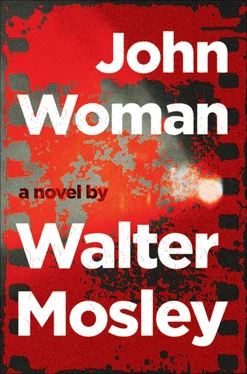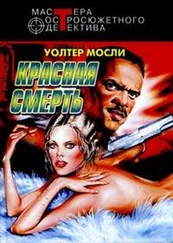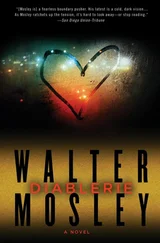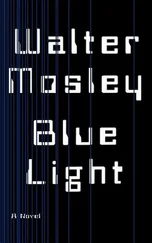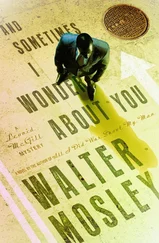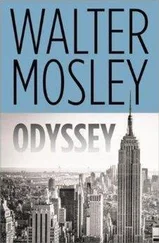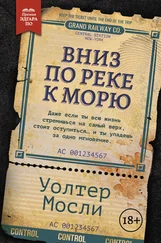Down toward the stage, on the right side of the center row, sat the college president and Willie Pepperdine. Luckfeld wore an off-white gabardine suit and Willie a close-fitting midnight blue sports coat and jeans. His yellow shirt was buttoned to the neck but he wore no tie.
When John and Theron approached both men stood.
“Glad you decided to do this, John,” Luckfeld said holding out a welcoming hand.
Willie patted John’s shoulder. “I’m surprised Eubanks had the smarts to deal you in.”
“She didn’t have much choice,” John said.
“We were thinking that you should wait backstage until the room fills,” Luckfeld suggested. “I’ll do the introduction and then you can come out.”
“I don’t think so,” John countered. “I should be up onstage waiting for them and then, when everyone is seated, I’ll just get into it.”
“That sounds right,” Luckfeld agreed after a moment’s meditation, “more immediate.”
“One thing, Colin,” John said to the president.
“What’s that?”
“Any truth to these allegations?”
“No,” he said, with a grin. “Not a one.”
John nodded and moved toward the side-stair that led up to the stage.
This time there was an oak lectern again but no table or Containment Report trunk; no three-screen slide show or slow-moving message from Brother of George.
John took his place behind the lectern and said aloud, “You can let them in,” to the four young men who had taken their places at the doors.
As the audience filed down the aisles John thought about the walk across campus, the yellow confession sheets, Chapman Lorraine (of course), his father and how Detective Colette Margolis would wrestle him to the floor in a secret room the police kept for recreation. He wondered how he had maintained sanity in a life that was almost completely separate from the world in which he lived.
People made their way among the aisles and pews. There were students alongside the faculty and others. A few men and women with telephoto cameras stood at the back of the auditorium and a student camera crew was there to film the talk.
When a shadow moved above his head John saw a microphone boom lowering. It was like the final piece of a jigsaw puzzle dropped into place at the end of a rainy afternoon.
The obedient audience went directly to their seats in hushed anticipation.
He looked out upon the thousand and more faces and the hush turned to silence.
“We have come here today not to be lectured to or addressed but rather to look inside ourselves to see what it is that makes us possible,” John said without referring to the speech that was still folded in his breast pocket. “That’s how I was going to start this address, with words that were smart and vague enough to be a balm for the problems that bring us here, words to deflect the recriminations brought to bear on the walls and halls of this institution. If I could get us to look at our own needs and failings then maybe we could forget.
“But in truth we will not disremember anything or absolve anyone. Human beings hold grudges long past their expiration dates. They wage wars in the names of their great-great-grandfathers and over borders long ago redrawn, yelling out battle cries in languages that are not the tongues of the original combatants.
“We are, all of us, ready to hate and fight back. We despise in free form, casting our gaze from one poor victim to the next. Thieves, child molesters, murderers and liars fill social media platforms and newspapers, TV reports, talk radio and rumor. We remember who murdered Julius Caesar and Archduke Franz Ferdinand. We hate people even after they have died and this spite lives on past our own deaths.”
John stopped for a moment to look at his audience.
“We tell ourselves that we are better, that we would stand up against oppression and die for the rights of our fellow citizens. Most of us wouldn’t but even if we did who would profit by it? Our fates were written long ago in our stars, our trilling blood. There’s no escape, no justice, no respite.
“We have seen on shiny, indestructible yellow posters the accusations against members of our community. If you believe what they say, our university is a den of thieves, especially the professorial class. But how could this be true? Even if you forget that every employee of this school is vetted by the institution, the state, and the departments they serve. Even if you forget that the first rule of law in this United States is innocent until proven guilty. Even if you ignore the fact that you have been given no proof of wrongdoing — still it is unbecoming of you and the perpetrators of this assault to question a fellow traveler who, through no fault of his or her own, is following the same mortal and imperfect path as the rest of us.”
The written speech now forgotten, John stopped again to look from side to side. The origin of this talk brought a smile to his lips. He was a killer, a guilty man defending the accused. The contradictions felt right.
“Are the allegations true?” he asked. “Of course not but the issue is not resolved by this answer. The problem is not innocence or guilt but the poison of suspicion. We, the lifeblood of this institution, have been poisoned by faceless, voiceless charges. This is terrible but not a permanent problem because there is a three-pronged cure: cold logic, bright hope and personal truth.
“I slept most of the day on the hard floor behind my desk after a long night of preparing for this address. When I woke up I walked here. The campus was empty because everyone was already here or sitting in front of a screen somewhere. On the way I saw hundreds of confessions penned by students learning humility by revealing their own truths and failings. Rather than leave the indictments to stand alone they put up their own confessions and shortcomings because this juxtaposition is the closest we will ever come to forgiveness.
“We cannot know, understand or, ultimately, judge history. In the same vein we cannot know, understand or judge another human being’s soul. We can never be sure of what went before. Certainly we must strive for truth; but that’s all we can do — strive. And even though these accusations are baseless we do know that we have done things that we’re not proud of, that might be seen as wrong. We recognize guilt because we are all guilty. That’s what the Bible tells us; the Old Testament that is the foundation for many of the warring religions of today.”
John exhaled and didn’t take a breath for a few seconds.
“That said,” he continued, “this event is a good thing. We do not naturally seek truth in ourselves. We don’t want to be faced with our mortality, limited awareness or inferiority, or God’s wrath. We’d much rather inebriate ourselves and condemn, get high on carnal pleasures, hone our fears and guilt into barbs and arrows aimed at our fellows. But every now and then we see our reflections in some glass. At that moment we see that we are the enemy. This is the only truth that abides. Those yellow posters are that glass. These baseless claims echo in our lives.
“Poisoned by suspicion we see ourselves, and if we take the time to work through this convoluted and spiny reaction we might see the hope of building a community of conscience and character.
“We know the charges against us. We know that if the truth came out it would take us along with it. We know about silence. That’s what the broadsides are telling us. And so if we wait a moment before condemning others we might find absolution and breathe easier.”
John took in a great draft of air. He was ready to continue the oration but found that there were no more words to say. For a moment he was confused by this unexpected dead end.
Читать дальше
